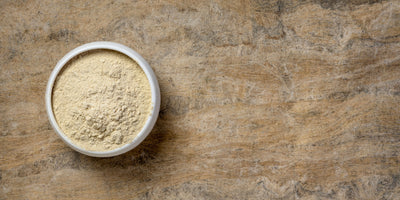
What is the best form of Magnesium for Sleep?
Magnesium for Sleep: Why Magnesium Glycinate and Magnesium L-Threonate Stand Out
Magnesium, an essential mineral for our bodies, has gained considerable attention in recent years for its role in promoting better sleep. This significant mineral is involved in over 300 biochemical reactions in the human body, one of which is regulating the body's sleep-wake cycles. But, with a myriad of magnesium forms available on the market, which is the best for sleep? The answer lies primarily in magnesium glycinate and magnesium l-threonate. Let's delve deeper into the role of magnesium in sleep and explore why these two forms are superior choices for those seeking a good night's rest.
The Role of Magnesium in Sleep
Magnesium is a potent mineral that plays a crucial role in supporting deep, restorative sleep. It does this in several ways:
-
Relaxation: Magnesium helps to relax the muscles and nerves in the body, alleviating physical tension that can make it difficult to fall asleep or stay asleep.
-
Regulation of Circadian Rhythms: Magnesium is involved in the synthesis of melatonin, the hormone that regulates your sleep-wake cycle. Sufficient magnesium levels can ensure a healthy circadian rhythm.
-
Stress Reduction: Magnesium aids in calming the nervous system and mitigating the effects of stress, a significant disruptor of sleep.
-
Neurotransmitter Regulation: Magnesium can also regulate neurotransmitters that send signals throughout the nervous system and brain, including GABA, a neurotransmitter that promotes sleep.
While all forms of magnesium can provide these general benefits, not all are equally effective in promoting sleep.
Magnesium Glycinate: The Relaxant
Magnesium glycinate is a form of magnesium that's bound to glycine, an amino acid that has its own sleep-promoting properties. This compound is known for its high bioavailability and gentle effect on the stomach, making it a popular choice for those seeking better sleep.
Glycine acts as a calming neurotransmitter in the brain and nervous system. When combined with magnesium, it becomes a powerful sleep aid. It not only helps you fall asleep quicker but also improves the quality of your sleep by increasing the efficiency of your body's natural sleep stages.
Moreover, magnesium glycinate is less likely to cause digestive discomfort, a common side effect with other forms of magnesium. This means you can take it close to bedtime without fear of being disturbed by a rumbling stomach.
Magnesium L-Threonate: The Brain Booster
Another form of magnesium that has shown promising results for sleep is magnesium L-threonate. This form is unique as it can cross the blood-brain barrier due to its special molecular structure. This ability allows it to impact cognitive processes directly, including sleep regulation.
Research suggests that magnesium L-threonate can enhance synaptic plasticity, which aids in the development and optimization of neural networks. This property can improve sleep quality by supporting the depth of sleep and the efficiency of the sleep cycle.
Additionally, magnesium L-threonate has been linked to reducing symptoms of anxiety and depression, both of which can interfere with sleep. By helping to balance mood and reduce anxiety, this form of magnesium can further support restful and uninterrupted sleep.
The Bottom Line
While all forms of magnesium can contribute to better sleep due to the mineral's inherent properties, magnesium glycinate and magnesium L-threonate stand out as top contenders.
Magnesium glycinate, with its calming effects and high bioavailability, is a great choice for those needing help to relax and fall asleep. On the other hand, magnesium L-threonate, with its unique ability to cross the blood-brain barrier and influence neural networks directly, is the go-to choice for those seeking to enhance the depth and quality of their sleep.
When considering supplementing with magnesium for sleep, it is essential to remember that individual needs and responses may vary. A healthcare professional can provide personalized advice based on your specific circumstances and requirements.
Beyond supplementation, remember to consider dietary sources of magnesium. Foods rich in this mineral include dark leafy greens, whole grains, nuts, seeds, and legumes. Incorporating these into a balanced diet can help to support overall magnesium levels in the body.
In conclusion, sleep is a complex process that can be influenced by various factors, including nutrient intake. Magnesium, especially in the forms of magnesium glycinate and magnesium L-threonate, can play a pivotal role in enhancing sleep quality. By understanding the unique properties of these forms, you can make an informed choice and pave the way for restful nights and energised mornings. Sleep well!
Deep Sleep Support
We’ve created a Deep Sleep Supporting supplement with a combination of the best available ingredients proven to assist in a better night’s sleep. This supplement is an easy-to-mix, great-tasting powder, offering a therapeutic dose of the nutrients your body needs to relax and fall asleep. Learn more about it here.









